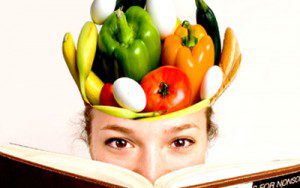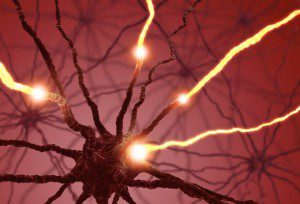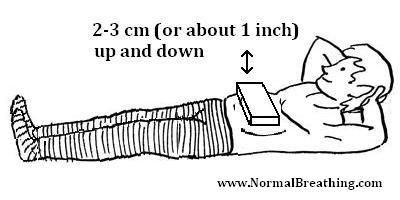By Deane Alban
Contributing Writer for Wake Up World
It’s been said that the greatest power of the human mind is its ability to focus on one thing for an extended period of time. But most of us struggle to concentrate. And when you can’t concentrate, everything you do is harder and takes longer than you’d like.
If you’ve ever held a magnifying glass in the sun, you know how scattered sunlight can be focused to start a fire. Imagine if you could concentrate your brain power into one bright beam and focus it like a laser on whatever you wish to accomplish.
In this article I’ll show you how to improve concentration by removing distractions, properly nourishing your brain, and using some simple concentration techniques.
You may be looking to improve your concentration to perform better at work, to ace your exams, to increase reading comprehension, or simply to make everyday life easier. If you can’t concentrate, you may think that’s just the way your brain works and that there’s not much you can do about it. But anyone can learn how to concentrate better. It’s a skill you can learn, just like playing the piano. It’s one we should have been taught in school.
Overcome Distractions
Being easily distracted isn’t all bad. In fact, in the right circumstance it can help you survive. Being hyper-aware kept our ancestors from becoming a sabertooth tiger’s dinner. But they didn’t have Facebook, mobile phones, emails, text messages, or the 5,000 ads we see every day all vying for our attention. (1)
Stop Multitasking
One of the worst things you can do for your concentration and focus is to multitask. Multitasking is a myth. You don’t actually do several things at once, your brain quickly toggles back and forth between tasks. You can do unconscious tasks such as walk and talk at the same time, but once it gets more complicated than that, you are sacrificing the efficiency of one task for another. As unrelated as it may seem, lack of mindfulness in the present has been found to promote brain aging by shortening protective end caps on your chromosomes called telomeres. (2)
Get Rid of Clutter
Brain MRIs show conclusively that clutter affects your ability to concentrate and process information. (3) Having an organized environment can make you more focused and productive. You’ll remember information better. It can even improve your mood.
Find Your Perfect Sound Environment
Not everyone responds the same to noise. Some people need complete silence while others concentrate better in the buzz of their favorite coffee shop. Classical music, especially Mozart and Baroque music, is often cited as the top brain-boosting music.
Johns Hopkins School of Education has compiled a list of the best music to increase concentration and memory. The music streaming service Spotify has classical and environmental music, along with white, pink, or brown noise that you can listen to for free. If you concentrate best in total silence, consider getting a pair of noise cancelling headphones.
 Feed Your Brain
Feed Your Brain
If you can’t concentrate, it’s possible that your brain isn’t getting the nutrition it needs. Unfortunately, most diet and nutrition information is focused on shrinking bellies, not feeding brains!
Eat Right for Your Brain
To eat the right food for your brain, keep these simple principles in mind.
- Eat plenty of fruits and vegetables. They are high in vitamins, antioxidants, and phytonutrients your brain needs.
- Avoid white sugar and refined carbs which send your blood sugar level on a roller coaster ride.
- Your brain needs a steady supply of blood glucose since brain cells don’t store energy.
- Avoid MSG, aspartame and other artificial sweeteners. These chemical additives are known neurotoxins.
- Use a wide variety of herbs and spices to make your meals delicious and brain-healthy. Rosemary and turmeric are particularly good for the brain. (4, 5)
- Buy wild salmon and grass-fed meat for their brain-boosting omega-3 essential fatty acids. (6, 7) Regular supermarket fish and meat can’t compare.
- Your brain is largely made up of fat, so eat plenty of healthy high-fat foods like nuts and avocados.
- Low-fat diets haven’t made us thin but they have been a disaster for our brains! They may even contribute to Alzheimer’s. (8)
- Avoid vegetable oils like canola which are highly inflammatory. (9)
- Use coconut oil instead. It contains medium chain triglycerides that uniquely feed the brain. (10)
- Treat yourself to dark chocolate.
- Flavonoids, caffeine and theobromine work together to improve memory power and concentration. (11)
Address Nutritional Deficiencies
You might think that nutritional deficiencies are a thing of the past, but this is not the case. The three most common deficiencies that can wreak havoc with brain function are DHA, vitamins B12, and vitamin D. (12)
Docosahexaenoic acid, or DHA, is an omega-3 essential fatty acid that is a major building block of the brain. Deficiency has been linked to many brain problems and psychiatric disorders. Memory loss, depression, mood swings, dementia, Alzheimer’s disease, and attention deficit hyperactivity disorder (ADHD) have all been found to improve with DHA supplementation. (13)
Vitamin B12 is the most common vitamin deficiency in the US, particularly among seniors who often have poor absorption. People who eat little or no meat are particularly at risk, since animal foods are the only dependable sources of B12. (14) Plants do not require B12 and therefore have no mechanism to produce, absorb or store it.
Vitamin D can lift your mood, improve memory, and increase problem-solving ability. Yet it’s estimated that only 25% of Americans get enough. (15) In the US, if you live north of Atlanta, it’s almost impossible to get all the sun exposure you need year round.
How to Improve Concentration with Dopamine
Neurotransmitters are chemicals that brain cells use to communicate with each other. One of the most important is dopamine (the ‘motivation molecule’) which provides your “get up and go.” If you have trouble concentrating, you probably are low in dopamine. (16) Low energy, motivation, and libido are all signs of low dopamine. So is needing pick-me-ups like caffeine, sugar, chocolate, or other stimulants to get through the day.
A protein-rich diet is an excellent source of the amino acids needed to create dopamine. Besides animal products, foods that promote dopamine formation include avocados, apples, bananas, beets, sea vegetables, green leafy vegetables, oatmeal, chocolate, and coffee. (17, 18)
The top supplements to improve concentration by boosting dopamine levels are tyrosine, phosphatidylserine (PS), and Ginkgo biloba.
 Tyrosine is an amino acid which converts into dopamine.
Tyrosine is an amino acid which converts into dopamine.
Phosphatidylserine (PS) is a phospholipid that’s found in particularly high concentrations in the brain. It acts as your brain’s “gatekeeper,” regulating which nutrients get in and how waste gets out of your brain. Studies have found it can improve memory, concentration, learning, and ADHD. (19, 20, 21)
Ginkgo biloba is one of the most widely used herbals remedies in the world. It’s widely touted as a “brain herb” and is traditionally used for a variety of brain-related problems — poor concentration, forgetfulness, headaches, fatigue, mental confusion, depression, anxiety (22) and even stroke recovery.
Physical exercise also boosts dopamine production. You don’t need strenuous exercise to get brain-boosting benefits. Taking walks, or doing gentle, no-impact exercises like yoga, tai chi, or qi gong all provide powerful mind-body benefits. (23, 24, 25)
Blast Stress, Increase Concentration with Meditation
If you’ve ever been under the gun to get an assignment done on time, you may have found that stress can improve concentration and focus for short periods of time due to a burst of adrenaline. (26) But relying on this rush to get work done is damaging to your brain in the long haul. Chronic stress can lead to depression, anxiety, poor decision making, sleeplessness, and impaired memory.
When facing chronic stress, your brain undergoes biochemical and structural changes that cause your brain to prematurely age and literally to shrink. (27) The best technique to reduce stress and improve concentration is meditation. Over 1,000 studies have been published demonstrating the health benefits of meditation. (28) Meditation can make you happier, smarter, and more resilient regarding life’s ups and downs. Regular meditators experience improved concentration and memory, greater creativity, stress reduction, and better sleep. Research shows it can actually decrease your biological age by 12 years! (29)
Over 20 million Americans meditate regularly. The US Marines use meditation to help troops deal with stressful situations they face on the job. (30) Corporate executives at General Mills, Target, Google, Apple, Nike, HBO, Procter & Gamble, and Aetna Insurance use it to maximize their brain power.
However, the traditional practice of meditation can take a long time before you feel like you’re getting real benefits. Using brainwave entrainment technology makes the practice of meditation faster and easier for many.
Boredom: When You’re Just Not That Into It
Let’s face it — some topics are just boring and so are some people! When you’re bored, your brain is disengaged and your motivation to concentrate flies out the window.
If you’ve ever sat through a class or meeting that was deathly boring, or had to read a truly mind-numbing report, you know how hard it can be to concentrate. Here are some tips to help improve your concentration when you’re “just not that into it.”
Chew Gum
When I was a kid we weren’t allowed to chew gum in school. I hope that’s changed because research shows that students who chew gum have better test scores. Chewing gum boosts accuracy rates and reaction times while increasing ability to concentrate and focus. It’s believed that gum increases the flow of oxygen to regions of the brain responsible for attention. (31)
Eat Mints
Eating mints has a similar effect to chewing gum. Especially if they are peppermint. Just a whiff of peppermint improves concentration, memory, and attention span. (32)
Doodle
Doodling has been shown to not only exercise your brain, but helps you concentrate, grasp new concepts, and retain information. (33)
Make Memories Sticky
Sometimes it’s hard to concentrate because you’re being exposed to new ideas that have nothing to “stick” to. Memorize a few basics about a topic. This foundation will make new information on this topic more interesting and likely to stick.
Work with Your Bio-Rhythm
If you have to do a task that’s not very inspiring, don’t make matters worse by going against your natural bio-rhythm. Do them when you are most alert.
Scientists have found there is a best time to do everything and that includes concentrating. While everyone is different, most adults do their best thinking in the late morning as their working memory, alertness and concentration reach their peak. Then from noon to about 4 p.m. most people become more easily distracted once again. (34)
Get Enough Sleep
Insomnia has become a modern life epidemic. If you didn’t get enough sleep last night or suffer with low-level chronic lack of sleep, you’ll have a hard time concentrating (or even stay awake!)
 Our circadian rhythms gets confused by too little natural light and too much exposure to unnatural light in the evening. (35) The worst kind of light is the blue light emitted by TVs, computers, iPads, and smartphones. Blue light mimics natural daylight, signaling your brain that it’s time to be alert and awake.
Our circadian rhythms gets confused by too little natural light and too much exposure to unnatural light in the evening. (35) The worst kind of light is the blue light emitted by TVs, computers, iPads, and smartphones. Blue light mimics natural daylight, signaling your brain that it’s time to be alert and awake.
Here are some tips for minimizing blue light exposure before going to bed.
• Download f.lux software to your computer. This free program automatically changes the quality and quantity of light of your computer screen to sync with the time of day.
• Grab a pair of Uvex Skyper orange tint glasses which have been proven to improve sleep and mood by blocking the blue light coming from all your electronics. (36)
Since the blue light emitted by your electronics reduces your natural melatonin production, you might also want to supplement this natural sleep hormone if sleep is a problem for you. (37)
Stay Hydrated
Drinking water may be the easiest way to improve memory and concentration. (38) Water makes up 75% of the brain but most of us are chronically dehydrated. (39) Even mild dehydration results in shrinkage of brain tissue and temporary loss of cognitive function including concentration and memory. (40)
Get the Right Amount of Caffeine
A little caffeine can help you get through a boring morning meeting. It boosts blood flow to the brain to improve concentration, mood and alertness. (41)
Experiment with various sources of caffeine — coffee, tea, green tea, and yerba mate — to determine your perfect brew. And keep in mind that the half life of caffeine is 5-6 hours, so you may have to stop drinking caffeine by early afternoon so it won’t keep you up at night. (42)
Do Yoga
Doing yoga can boost your brain power even more than doing conventional aerobic exercise. Even one session of yoga significantly improves working memory and concentration. (43) The top yoga poses for better concentration include the plow, the camel, the cobra, the tree, and the corpse pose.
Knocking on the Door of Life
“Knocking on the Door of Life” is a qi gong exercise that takes only 3 minutes. Unlike yoga, it’s done standing up. It moves qi (energy) up to your head to promote clear thinking, balance emotions, and calm a racing mind. America’s foremost qi gong expert, Lee Holden, teaches this simple exercise in his free video series Qi 101.
Don’t Forget to Breathe
Your brain needs oxygen — brain cells can live only a few minutes without it. Yet counterproductively, many people hold their breath while concentrating! There’s even a term known as “email apnea” since 80% of us forget to breathe when reading our emails or using our electronics. (44)
While there’s no app to remind you to breathe (at least that I know of!) you can increase your oxygen intake by improving your posture and breathing properly. (45) Most people breathe shallowly. Practice breathing deeply from your diaphragm as illustrated below.
My Favorite Concentration Tip
Pomodoro is Italian for “tomato.” It’s also the name of my favorite concentration and productivity tip.
The “pomodoro technique” was developed by an Italian graduate student as a study aid. It works like this…
- Pick a task you want to concentrate on — one that needs your undivided attention.
- Remove obvious distractions (like turning off your phone).
- Get comfortable.
- Tell those around you not to disturb you … unless the building is on fire!
- Set a timer for 25 minutes then give the task at hand your all. You can use a real kitchen timer or a virtual one. TomatoTimer.com has a desktop version that’s easy to use and can be set for 5, 10, or 25 minutes.
- If your mind starts wandering snap yourself back and remind yourself you only need to keep up this level of concentration for a few more minutes.
- When the 25 minutes is done, take a 5-minute break.
- Walk around. Grab a cuppa. Do some stretches.
- When you’re ready, you can do another “pomodoro” — a block of 25 minutes of intense concentration.
With each pomodoro, you are doing more than just spending 25 minutes in a state of highly productive focus. You are actually training your brain to block out distractions to increase concentration and focus for extended periods of time.
You’ll be surprised at how effectively this improves concentration and how much you’ll get done.
The Next Step
I’ve given you a lot of ways to improve your concentration and memory. Let’s do a quick recap…
- Make sure you’re giving your brain the basics it needs to function its best. This includes brain-healthy foods, sleep, and mind-body exercises like yoga or qi gong.
- Reduce stress and halt brain aging by meditating and giving up multitasking.
- Boost your dopamine levels and address nutritional deficiencies with the right supplements.
- Use concentration tips and techniques.
- And don’t forget to breathe!
If you feel like you’ve tried everything but still can’t concentrate, you may have an underlying health condition. If you haven’t already done so, rule out issues that can affect brain function such as ADHD, fibromyalgia, and thyroid disorders.
Hearing problems and vision problems can also affect concentration, especially in older folks. Sometimes the answer can be as simple as getting a pair of reading glasses.
Previous articles by Deane:
- How to Increase Dopamine, the Motivation Molecule
- Ways to Improve Memory and Live Longer with Music
- Exposed: Why Cholesterol Doesn’t Cause Heart Disease
- Overcoming Resistance to Change: The Secret to Lasting Health
- Change Your Thoughts, Change Your Brain
- Advantame – the “New & Improved” Artificial Sweetener, Approved by FDA
- 5 Reasons You Aren’t Getting Enough Vitamin D.. and What You Can Do About It
- Five Common Food Additives That Can Damage Your Brain
- 18 Choices You Make Every Day That Keep You Up at Night
- Stress, Telomeres, and the Secret to Prevent Aging
- 20 Common Medications That Can Cause Memory Loss
About the author:
 Deane Alban holds a bachelor’s degree in biology and has taught and written on a wide variety of natural health topics for over 20 years. Her current focus is helping people overcome brain fog, “senior moments”, and other signs of mental decline now, and preventing Alzheimer’s and dementia in the future.
Deane Alban holds a bachelor’s degree in biology and has taught and written on a wide variety of natural health topics for over 20 years. Her current focus is helping people overcome brain fog, “senior moments”, and other signs of mental decline now, and preventing Alzheimer’s and dementia in the future.
The human brain is designed to last a lifetime, but modern life takes a greater toll on the brain than most people realize. Deane teaches the best ways to keep your brain healthy and stay mentally sharp for life at her website BeBrainFit.com.
Related Posts
Source Article from http://wakeup-world.com/2015/03/11/get-in-the-zone-how-to-improve-concentration-and-mental-clarity/
Views: 0
 RSS Feed
RSS Feed

















 March 11th, 2015
March 11th, 2015  FAKE NEWS for the Zionist agenda
FAKE NEWS for the Zionist agenda 











 Posted in
Posted in 
















